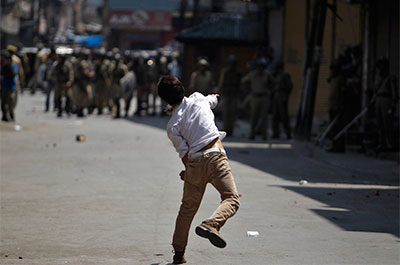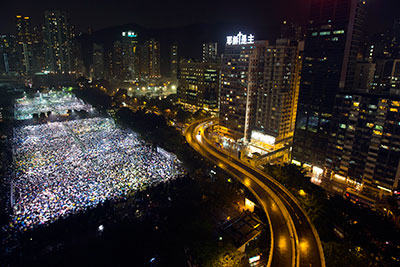Sumit Galhotra/CPJ Asia Program Research Associate
Sumit Galhotra is the research associate for CPJ's Asia program. He served as CPJ's inaugural Steiger Fellow and has worked for CNN International, Amnesty International USA, and Human Rights Watch. He has reported from London, India, and Israel and the Occupied Territories, and specializes in human rights and South Asia.
Journalists and imperfect justice in Bangladesh
Bangladesh’s Supreme Court has hardened the sentence against Abdul Quader Molla, a top Islamist of a key opposition party, from a life term to death for his role in mass killings committed during the country’s war of independence from Pakistan in 1971. But what caught my eye in particular was that Molla was also convicted…
Q&A: Nadia Sharmeen on journalists in Bangladesh
Nadia Sharmeen was attacked when she tried to cover a protest in April. (Ekushey TV)It has been a turbulent year for journalists in Bangladesh. It began with blogger Asif Mohiuddin being stabbed in January as he left his office in Dhaka. The following month, blogger Ahmed Rajib Haider was killed for his writing. Four other…
New Zealand accesses journalist’s records, movements
Following reports earlier this week that New Zealand, with help from U.S. intelligence, may have spied on one of its journalists, Wellington is under fire for tracking the phone records and movement of another journalist. Ironically, this journalist came under surveillance after writing about potentially illegal government surveillance.
New Zealand, US may have spied on McClatchy reporter
Concern over government surveillance of journalists has washed up on the faraway shores of New Zealand, with a report in the country’s Sunday Star this week asserting that the military there, with help from U.S. intelligence, spied on an investigative journalist who had been critical of its activities in Afghanistan.

Kashmir’s Internet suspension fits pattern of restrictions
Curbing the flow of information during heightened periods of tension has become routine business by authorities in the northern Indian state of Jammu and Kashmir. Access to mobile Internet service was suspended Thursday after violent protests erupted in the state. Although the service was restored late that night, the episode is another example of the…
Doubts as Sri Lanka says Commonwealth meeting open
As Sri Lanka prepares to host the biennial Commonwealth Heads of Government Meeting (CHOGM) in Colombo in November, some journalists have wondered whether they will be able to access the summit given the island nation’s abysmal press freedom record.
In China, reporter’s death sparks questions on censorship
Twenty-four-year-old Bai Lu was just four days into her new job as a journalist at the Urumqi Evening Post when she was killed. She and her colleague, Chen Aiying, were struck by a bulldozer while reporting at a major construction project on April 18 in the city of Urumqi in Xinjiang province. Chen was seriously…
